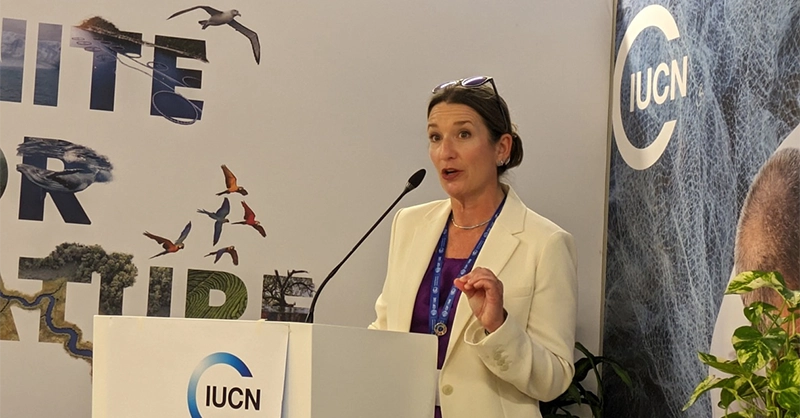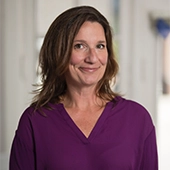Soaking Up Chicago’s Stormwater Pollution
A team of Northwestern researchers has designed the ‘PEARL’ media, a sponge-based platform with a special coating that has an affinity for pollutants found in the Chicago area
“Water is life.” I’ve heard that many times, from many people, in many languages. And the more I hear it, the truer it becomes.
Funnily enough, I never paid much attention to water, having grown up on the Great Lakes. This changed for two main reasons. First, years of fieldwork in East Africa taught me about the hardships that water caused for so many people—difficulties with preparing food, dangers of fetching water, problems bathing children. The second was finding horribly high levels of lead in our tap water here in Illinois, caused by a lead service line.
Now I can’t not notice water. Since arriving at Northwestern nearly 8 years ago, my research has become more and more entrenched in making invisible water problems visible. In other words, water security— the ability to reliably access and use water to meet basic needs—is the core of my research program.
The Water Insecurity Experiences (WISE) Scales, which were developed at Northwestern, capture universal experiences with water access and use in 12 simple questions. Prior global water indicators did a good job measuring water availability and infrastructure, but they did not tell us how water was (or was not) “showing up” in people’s lives. The global uptake of the WISE Scales has been remarkable—more than 100 organizations have used them in 50+ countries, attributable in great part to the fact that they bring the missing voice of the people to the water sector.
The WISE Scales are telling us a lot about health, well-being, prosperity, and climate events. The quote that “if climate change is a shark, water is its teeth” has long resonated with me, and thanks to collaboration with the Gallup World Poll, we now have data to prove that. Please join us for a webinar on March 27 to learn more. Based on nationally representative, geotagged data from 29 countries, we can show that water insecurity becomes more common and more severe with drought, floods, and storms. To this end, the Paula M. Trienens for Sustainability and Energy, of which I am a faculty affiliate, helped to support my trip to COP 28 in Dubai where I hosted a panel on water and climate at the International Union for the Conservation of Nature (IUCN) pavilion.

My other research thrust has to do with making water quality visible. Here my personal life has fruitfully merged with scientific interest—my collaborator Julius Lucks is a great scientist, Co-Director of the Center for Synthetic Biology, and also happens to be my husband. He and I are collaborating on field testing some of his lead biosensors with Chicago drinking water; we will begin recruiting participants in earnest this month. (If you are interested in participating, please reach out.) It’s gratifying to work on democratizing information about an issue as important as water. Lead is really on people’s minds. In fact, just last week President Biden signed a bill that allocated $500,000 to the Center for Synthetic Biology to support our research on rapid In-Home Lead Tests, Greater Chicago Area. We greatly appreciate Senator Durbin and his staff for their support.
As we look forward to World Water Day, March 22, I am fortunate to be surrounded by other excellent water-related research funded by the Trienens Institute and led by Trienens Faculty Affiliates. Vinayak Dravid, Abraham Harris Professor of Materials Science and Engineering, is developing an innovative new environmental remediation technology to clean local waterways and capture nutrients and metals for reuse. Separate funding to Aaron Packman, Professor of civil and environmental engineering and Director of the Northwestern Center for Water Research, provides necessary on-campus climate instrumentation for CROCUS, a collaborative initiative that aims to improve understanding of urban climate change and its impacts in Chicago to form potential solutions to reduce climate vulnerabilities. We also see great things in the work of Northwestern alumni–Kirsten James (WCAS ’00) is helping solidify a sustainable water future as the leader of the Value Water Finance Initiative at Ceres.
We are fortunate here at Northwestern to live in proximity of such abundant fresh water. Emily Dickinson wrote that “Water is taught by thirst.” I’d like to think that the teaching and research we do here at Northwestern might help in the tiniest of ways to mitigate some of the world’s proverbial thirst.

Sera Young
Associate Professor, Department of Anthropology
Faculty Affiliate, Paula M. Trienens Institute for Sustainability and Energy
Fellow, Institute for Policy Research